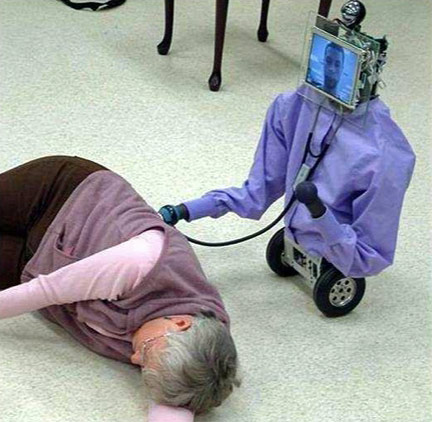Molecular forklifts promise 'smart dust'
Miniature bio-mechanical sensors powered by nature are on the way

A nanotechnology breakthrough threatens to create job cuts in an unexpected area - laboratory assistants.
University of Florida researchers have succeeded in creating molecular 'forklifts', overcoming a critical barrier in the development of 'smart dust' sensors.
Testing for bioweapons, contaminated food or blood disorders usually requires a full laboratory.
Scientists would like to reduce that to a so-called 'lab on a chip', and eventually to micro-sensors that could be mass manufactured and used by unskilled personnel.
No more Best Befores?
Food packaging might incorporate smart dust to give a visual clue when it's spoiled, or health workers could use the sensors to screen thousands of people for medical problems in just a few hours.
Until now, miniaturising the testing process involved microscopic pumps, water and batteries. Now the Florida researchers have found a way to use natural motor proteins to perform heavy lifting and transport tasks on a cellular scale.
Sign up for breaking news, reviews, opinion, top tech deals, and more.
Their proteins can move contaminants and tag them with fluorescent compounds without the requirement for water or electricity - all the energy comes from natural sources.
Using this natural system in an artificial chip is only the first step to creating smart dust the scientists warn, so it could be a few years yet before we have our health checked by a packet of powder and those CSI techs are handed their P45s.
Mark Harris is Senior Research Director at Gartner.